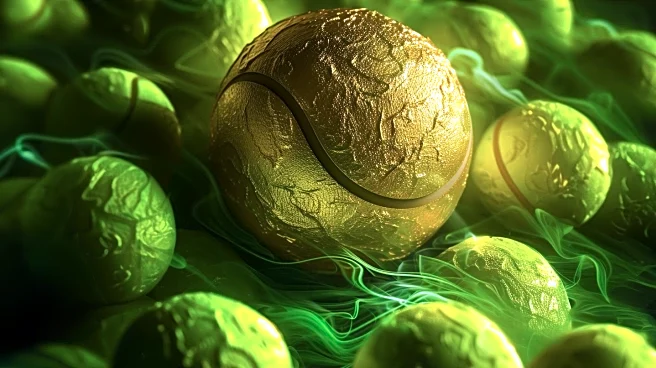What is the story about?
What's Happening?
A new study suggests that vitamin B, specifically riboflavin and biotin, may play a role in alleviating symptoms of Parkinson's disease. Researchers from Nagoya University Graduate School of Medicine in Japan conducted a study analyzing stool samples from individuals with Parkinson's and controls across six countries. They found that genes in gut bacteria responsible for producing riboflavin and biotin were reduced in Parkinson's patients. This reduction was linked to lower levels of short chain fatty acids (SCFAs) and polyamines, which are crucial for maintaining a healthy intestinal lining. The study highlights the potential of vitamin B supplementation as a therapeutic avenue for Parkinson's, although further research is needed to confirm its efficacy.
Why It's Important?
Parkinson's disease affects millions worldwide, and current treatments primarily focus on managing symptoms rather than addressing underlying causes. The study's findings suggest a novel approach by targeting gut health, which could lead to improved management of the disease. If vitamin B supplementation proves effective, it could offer a low-cost, safe treatment option that enhances the quality of life for patients. Additionally, understanding the gut-brain connection in Parkinson's could open new research avenues and lead to more comprehensive treatment strategies.
What's Next?
Further research is necessary to determine the appropriate dosage, timing, and safety of vitamin B supplementation in Parkinson's patients. Clinical trials will be needed to assess the impact of supplementation on gut microbiota, SCFAs, polyamines, and overall disease progression. Researchers will also explore how these findings can be translated into practical treatments for patients, potentially leading to new guidelines for managing Parkinson's disease.














